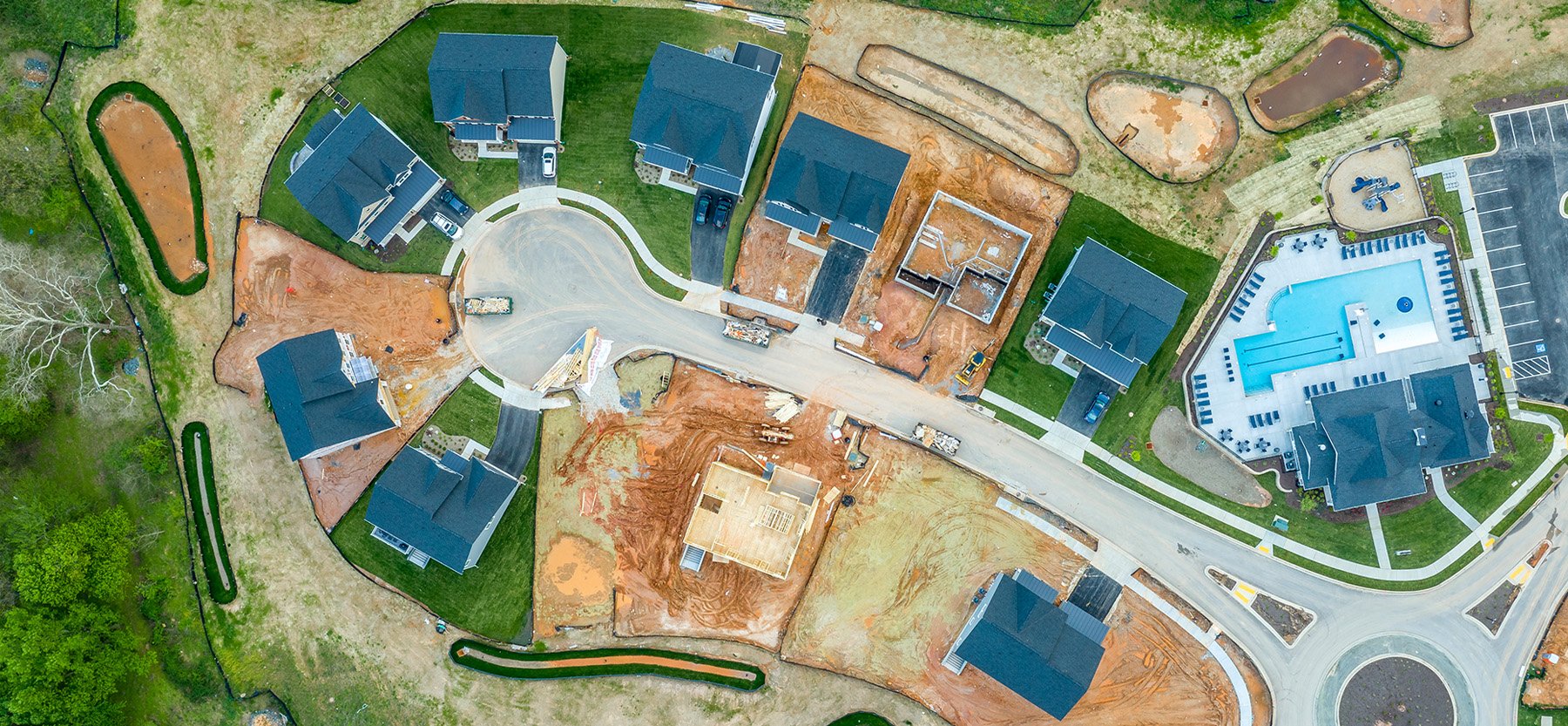May 15, 2024
How To Create a Real Estate Vision Statement - And Why It Matters
Imagine this: You’ve poured your heart and expertise into crafting the perfect community. But how do you translate that vision into a reality that resonates with homebuyers and propels your development company forward? The answer lies in a powerful tool – your real estate vision statement.
A vision statement isn’t just a dusty plaque on the wall or an impressive platitude – it’s a dynamic roadmap that guides your entire team, from groundbreaking to grand opening and beyond. It can steer decision making and attract potential customers and partners who share your passion for building not just homes but thriving communities.
This blog dives deep into the world of real estate vision statements. We’ll explore what they are, why they matter and how you can craft one that captures the essence of your brand and sets you apart in a crowded marketplace.
What is a vision statement?
A vision statement is a concise and inspiring declaration of a company’s long-term goals and aspirations. In describes the desired future state of the organization, outlining what it wants to achieve and the impact it wants to have.
Although many often confuse mission statements and vision statements, they serve a different purpose to showcase an organization’s core values. A vision statement is like a mission statement in that it needs to be concise and impactful, but it differs in that it focuses on the company’s long-term goals instead of its current operations. While a mission statement shares what the company does, a vision statement offers a look into where the company expects to go. A mission statement is also more likely to be lasting, while vision statements can adapt and grow as the company’s goals may realign over time.
Vision statements should conjure up a tangible image of what your company would look like if it were to achieve all its goals. Vision statements offer a concrete way to illustrate the company’s intended trajectory to key audiences, setting a high bar to strive toward.
You can use your vision statement to communicate your goals to potential customers, business partners and investors. In just a few words, the vision statement can give them a sense of what it's like to work with you.
You can also use your vision statement to communicate your organization’s goals to your employees. It’s an efficient, memorable way to get them on board and indicate what you’ll be striving towards as a team. If crafted well, vision statements can ignite passion and a sense of purpose within the team, guiding them to consistently perform in a manner that supports the company’s overarching goals.
Why do vision statements matter?
Vision statements are important for any company, but they are particularly important for a real estate developer. Whether you’re a new company or you’ve been building homes for years, you’ll need a vision statement as part of your overall branding effort. Here are just a few reasons why vision statements are so important:
They strengthen company identity and culture.
Your company is only as good as your team. To be truly successful, you’ll need employees that are committed to your organization and understand your end goals.
One of the easiest ways to communicate these goals, particularly to new hires, is through a vision statement. The concise nature of a vision statement means that it’s something your team can reference when facing many different types of challenges and making big decisions.
Talented employees want to work for companies that have a strong vision and defined goals. This strong vision creates a sense of teamwork among employees. Studies indicate that employees who find their company's vision meaningful have higher engagement levels, which lead to higher levels of productivity. Not only can you use your vision statement to attract top talent, but it also creates a sense of loyalty that can keep your team members with you long-term.
Well-developed vision statements are a powerful motivator, creating a sense of purpose and inspiring your team to go the extra mile to achieve the company’s aspirations.
They offer strong internal direction.
A strong real estate vision statement helps guide decision-making and keeps everyone on the same page about the company’s ultimate goals. When faced with choices, it helps steer the team toward actions that align with the desired future state.
Organizations are often made up of vastly different employees with diverse backgrounds, mindsets and work styles, but what they share is a mutual dedication to your organization’s purpose and principles. Vision statements unite these individuals and offer a compass to all employees to guarantee all actions are performed with the organization’s long-term aspirations in mind. Setting standards for the future through a vision statement provides an exceptional way to position the company for success.
They tell customers about your goals.
Vision statements are particularly important in real estate because your customers are making such a big purchase. Their new home is likely going to be one of the most important purchases of their lives, and it’s something that’s going to define them going forward. If a developer has a vision that the customer truly believes in, it will help them stand out from more generic competition.
Not only can your vision statement help your customers, but it can also help your investors or any other professional partners that you might be interested in working with. Having a powerful vision statement will indicate to them you’re worth investing time and money into.
Tips For Writing A Vision Statement
Although the concept of a vision statement is simple, writing one can be tricky. Ultimately, only you can determine the best way to articulate your vision to the world. However, there are some key factors that every company can consider when writing a vision statement. Here’s what to keep in mind:
Make a list of your long-term priorities.
The biggest goal of your vision statement is to reflect your future goals in the real estate industry. If you’re not sure where to start when writing your vision statement, sit down with your leadership team and determine your ‘why,’ then make a list of your biggest priorities and values. Take the time to rank these concepts and narrow down what is truly most important to you in the long run. These are the key points that you’ll want to focus on in your vision statement.
Get brainstorming to understand your team’s values by asking thought-provoking questions that speak to the expected impact of the company both internally and externally. These questions can include:
- As the company grows through the years, what impact do we expect the organization to have within the industry and/or on the world?
- How do we hope the brand will engage with its customers and other stakeholders?
- What qualities do we hope to reflect within our company culture?
- How do we hope the company will benefit its customers?
- What would success look like for our organization?
Aspire for big possibilities.
Although it may sound unwise to set incredibly high expectations, companies should offer bold, inspiring vision statements that demonstrate their ambitions and aspirations. Show stakeholders that your company thinks big and holds high standards for itself. Although the illustrated goal of the company’s vision statement may seem unreasonable or difficult to achieve, that doesn’t mean it won’t become feasible in the future. A vision statement typically shares long-term goals that will take time and dedicated efforts to accomplish.
Think about internal as well as external value.
One mistake that many companies make is thinking of their vision statement as a marketing tagline. While your vision statement is part of your overall brand, it’s also used to communicate your goals internally. Focus more on authentically conveying your values than winning over customers. A vision statement that’s true to who you are as a company will be most successful in the end.
Keep it short and sweet.
Ideally, your vision statement should be no longer than one to two sentences. Think of it as your elevator pitch – you should be able to articulate it clearly in under a minute. This ensures that the statement is easily memorable for the entire organization and potential customers. The statement should also avoid any jargon or industry terms to prevent confusing or dull visions that fail to inspire. Stakeholders are not likely to read a lengthy vision statement, and they’re even less likely to remember it if it doesn’t offer clear-cut language.
By offering a concise vision statement, your organization succinctly delivers a glimpse into the core of its foundation and expected future to easily interest its audience. If there is any concern that a short vision statement doesn’t fully capture the organization’s trajectory, a longer version can be created for internal purposes.
Take a look at competitors’ vision statements.
While you will want your vision statement to be completely unique, you might find some inspiration in looking at your competitors’ vision statements. Don’t be afraid to look at examples, particularly from other companies in the real estate industry, to get an idea of how to best convey your goals.
Researching competitors' visions will also show you what others aren't doing. Often, you'll notice an untapped area you can claim as your own.
Test and refine to ensure you get it right.
Don’t expect to nail the perfect real estate vision statement on the first try. Be prepared to write multiple drafts, getting feedback from your team and trusted advisors in between each version. Don’t be afraid to continue refining your statement until it truly resonates.
Examples of Excellent Vision Statements
Microsoft
At its founding, Microsoft’s vision statement was “A computer on every desk and in every home.”
It’s simple, but concrete, and conveyed a vision of the future that ultimately became a reality.
Patagonia
“Build the best product, cause no unnecessary harm, use business to inspire and implement solutions to the environmental crisis.”
This vision statement goes beyond product to discuss a cause that’s at the heart of their business.
"To provide access to the world's information in one click."
It’s a clear-cut, inspiring outlook that simplifies the search engine’s function and purpose in a meaningful way.
“Create economic opportunity for every member of the global workforce.”
This vision statement is ambitious, but it serves as the driving force behind LinkedIn’s business model.
Southwest Airlines
“To be the low-cost carrier of choice for leisure travelers in every market we serve.”
This vision statement is customer-centric, detailed about the niche in which it operates and highlights a key differentiator between its goals and those of other major airlines.
A thoughtful vision statement is something that can elevate your brand and make you stand out from the competition. It’s a crucial part of developing your overall brand identity.
What's Your Real Estate Vision?
Milesbrand is a unique creative agency focused on helping real estate developers build their brand identity. From your vision statement to your website, social media presence, and much more—we have you covered. Contact us today to see how we can take you from land to brand.





.jpg)






